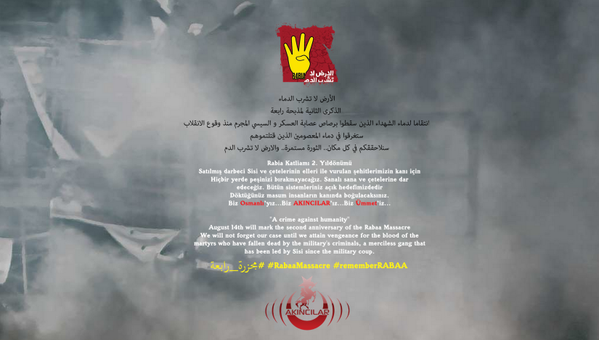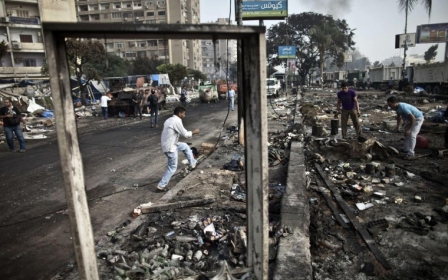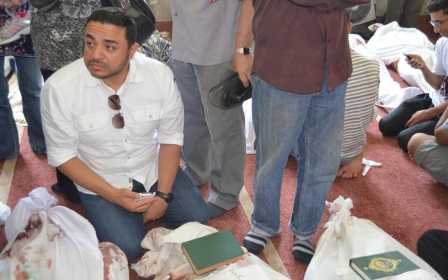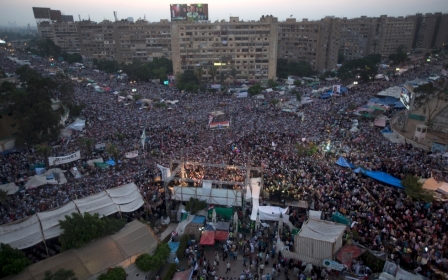Cairo Airport website hacked, homepage replaced with Rabaa sign

The website of Cairo Airport was hacked on Friday, with the attackers pledging to seek “vengeance” for those killed during the Rabaa massacre in 2013.
The attack was launched on the second anniversary of the killings, during which at least 1,000 Egyptians, predominantly supporters of the Muslim Brotherhood, were killed according to Human Rights Watch.
Cairo-airport.com, which is the official website for Cairo International Airport and is usually visited over 2,500 times a day, was attacked on Friday morning, as Egyptian security forces deployed in large numbers in anticipation of street protests.
The site’s homepage was replaced with an image of the Rabaa sign, a hand symbol that was created after the violent clearing of protest sit-ins at Cairo’s Rabaa al-Adawiya Square and al-Nahda Square.
The four-fingered hand signal and accompanying logo, which stem from the meaning of the Arabic word rabaa (fourth), have come to be synonymous with the now-outlawed Muslim Brotherhood.
A written statement accompanied the logo, and was published in Arabic, Turkish and English.
The statement promised that “the revolution continues,” warning that Egypt’s current rulers would “drown in the blood” of those killed during the Rabaa massacre and since.
A logo at the bottom of the statement bears the name Akincilar, a Turkish hacking group that has previously claimed responsibility for attacks on the website of the French satirical magazine Charlie Hebdo in 2011 and hundreds of Israeli websites in the same year.
The group’s name is taken from the Turkish word for “raiders,” which is also used to refer to Ottoman-era cavalry divisions that operated on the front-lines of conflicts by using guerrilla tactics to demoralise the enemy.
Airport administrators said on Friday morning that they had closed the facility’s website to avoid further attacks.
At the time of this story's publication, over eight hours later, the website was still inaccessible.
Middle East Eye propose une couverture et une analyse indépendantes et incomparables du Moyen-Orient, de l’Afrique du Nord et d’autres régions du monde. Pour en savoir plus sur la reprise de ce contenu et les frais qui s’appliquent, veuillez remplir ce formulaire [en anglais]. Pour en savoir plus sur MEE, cliquez ici [en anglais].




